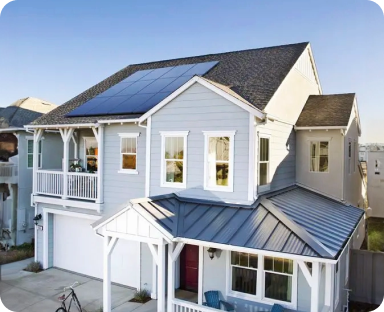For now, there will be no pricing changes. We remain confident in the bright future that solar promises.
Overview:
After an 8 month long legal battle following a trade petition filed by U.S. based solar manufacturer, Suniva, Trump has ultimately decided to impose tariffs on imported solar panels.
We posted a blog on this back in September, and have been actively engaged alongside other industry members since the initial filing. This includes team members attending both ITC hearings in D.C., signing onto petitions, and SunPower’s CEO, Tom Warner, testifying at the ITC hearings.
We are still parsing through the President’s solar tariff determination, and there remain a number issues that require further clarification. However, given the information we have now:
- Module pricing input assumptions will remain the same for the near-term, meaning our pricing is unchanged.
- However, it is possible there will be price changes moving forward.
It remains possible that SunPower will receive a tariff exemption due to its US HQ, Mexico manufacturing plant, and its differentiated solar cell technology that separates SunPower from the rest. If you have any questions do not hesitate to reach out, and we will answer them as soon as information is made available.
Trump’s Tariff:
While his tariffs are less than what was expected from industry analysts, here’s what he determined.

What happens now isn’t clear, but this is what experts are saying:
Tariff opponents say that more than one-third of industry’s 260,000 jobs are at risk of disappearing following the president’s action to discourage imports.” This is due to the fact that a large majority of solar jobs in the U.S are made up of installers, and these tariffs are expected to hurt the U.S industry overall. That’s why the Solar Energy Industry Association (SEIA) opposed the case, as stated here: https://www.seia.org/news/presidents-decision-solar-tariffs-loss-america.
A Trade Policy Counsel at R Street, Clark Packard, published this quote yesterday which summarized the issue at hand succinctly:
“The domestic solar industry has been growing at a rapid pace in recent years,” he said. “The petitioners in this case — both bankrupt firms that are majority foreign-owned — employ about 1,000 Americans, while the rest of the domestic industry employs more than 260,000 Americans up the entire value chain.”
“More good-paying jobs will be jeopardized by today’s decision than could possibly be saved by bailing out the bankrupt companies that petitioned for protection,” Packard added. “Today’s decision also will jeopardize the environment by making clean energy sources less affordable.”
This tariff is being imposed in the midst of a larger trade war with China, and isn’t the first of its kind, either. There are still negotiations and talk underway regarding solar imports, and plenty is left to be determined as it pertains to EmPower.
Get an estimate for solar and claim your energy independence.

Get an estimate for solar and claim your energy independence.
About the Author
EmPower Solar develops, engineers, installs, and services solar and battery systems for residential and commercial clients. Since 2003, EmPower Solar has empowered thousands of New York homeowners and businesses with 47 megawatts of distributed solar. Its vision is to create a new energy paradigm powered by clean, renewable energy for a more prosperous, healthy, and civil world. The company culture is defined by the EmPowering Way, which results in consistent 5-star customer service reviews. For more information visit empower-solar.com.